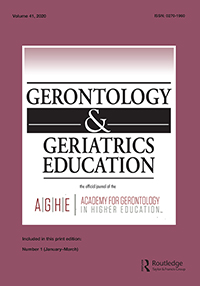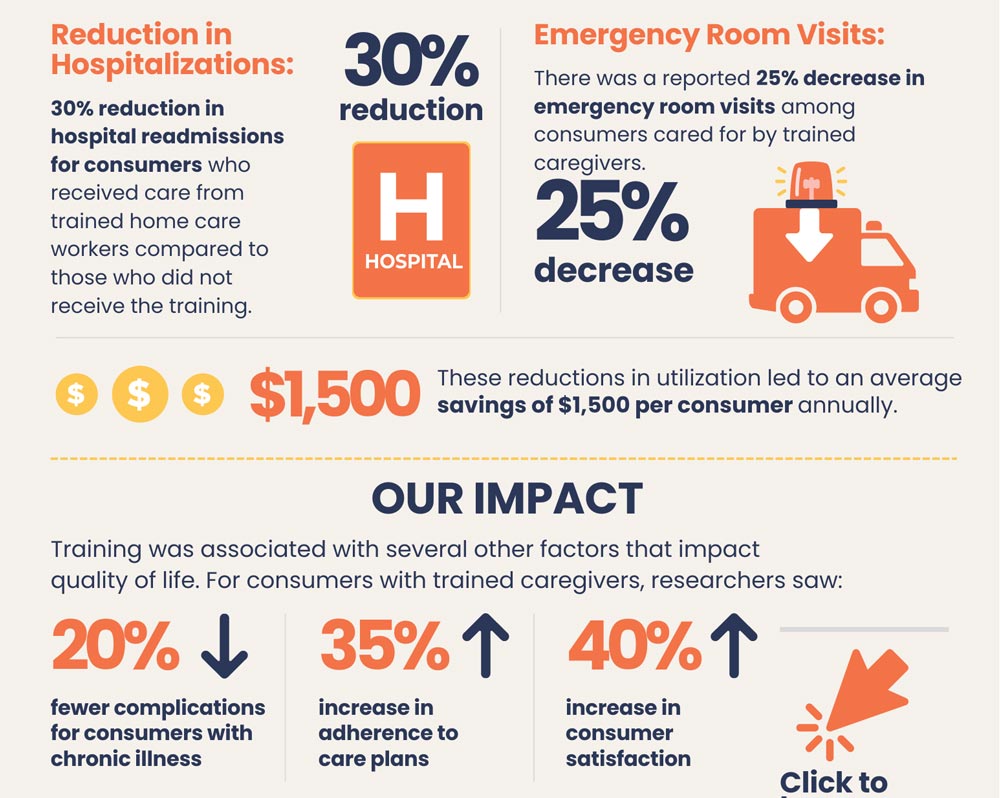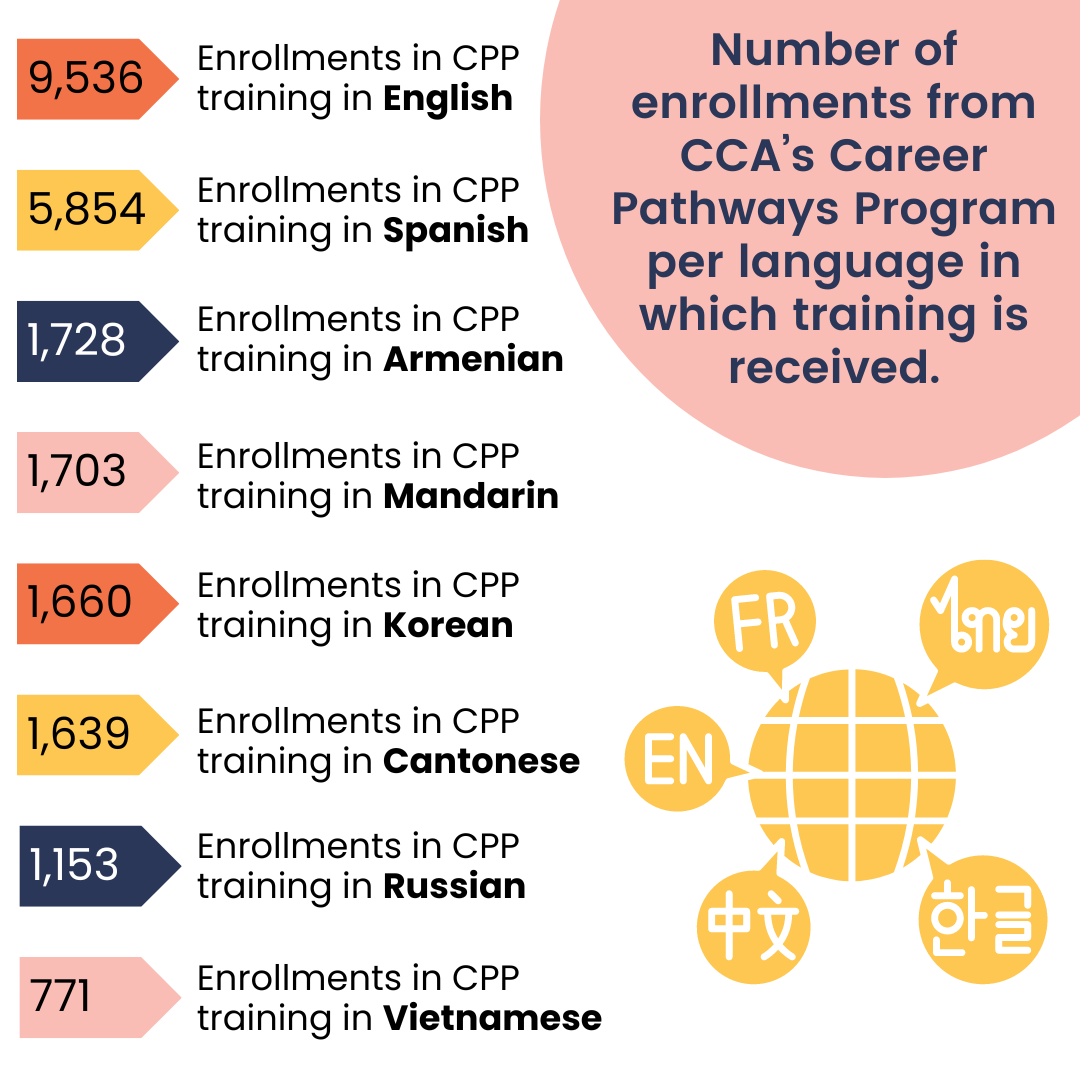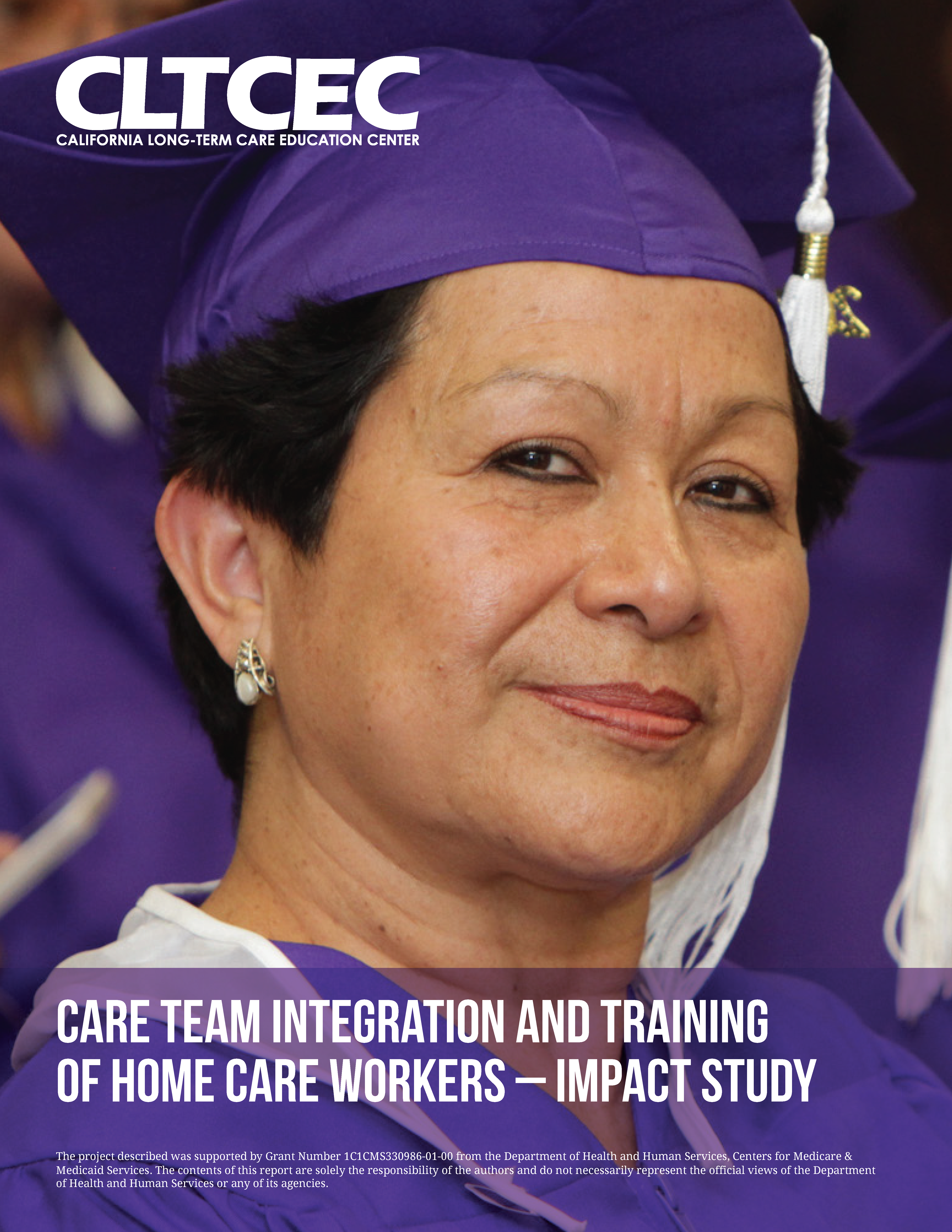The Center for Caregiver Advancement (CCA) frequently collaborates with researchers to measure the impact of our caregiver training programs and share data with our readers and stakeholders.
Our research collaborators report on their research findings via published study articles in peer-reviewed journals. The research in this published article focused on training for caregivers working with people who have Alzheimer’s disease and related dementias (ADRD).

Competency-based training for in-home supportive services providers of consumers with ADRD
Study Authors: Lourdes R. Guerrero, Corinne Eldridge, Zaldy S. Tan
The In-Home Supportive Services (IHSS) program in California provides direct care for low-income older adults and people with disabilities. However, the majority of IHSS workers receive little to no training in caring for consumers, especially those with Alzheimer’s disease and related dementias (ADRD).
The research team worked with the Center for Caregiver Advancement (CCA), which developed a competency-based training program for IHSS caregivers who provide care for persons with ADRD.
The 10-week, 35-hour program provided by CCA consisted of training modules with topics ranging from caregiver roles and the rights of the care recipient to assisting with personal hygiene, with a focus on managing ADRD-related behaviors. Alzheimer’s-related behaviors may include memory loss, wandering, sundowning, hallucinations, and repetitive behaviors, among other symptoms.
The in-person training was delivered in English and Spanish to two cohorts of 30 IHSS workers each. A total of 57 participants completed the training program; the majority in both trainings were female (79%) and self-identified as Latina (70%). There were statistically significant gains in confidence in caregiving skills and knowledge among all participants.
This is curated content. For details about the research study, read the original article published in the peer-reviewed journal Gerontology & Geriatrics Education.
Source Citation: Gerontology & Geriatrics Education, Volume 41, 2020 – Issue 1, August 2019, Pages 121-132, https://doi.org/10.1080/02701960.2019.1658579
Image Credits: Gerontology & Geriatrics Education, Taylor & Francis, Freepik























